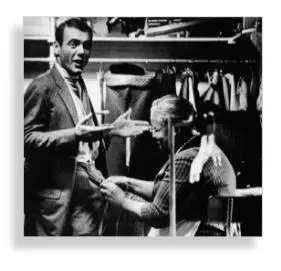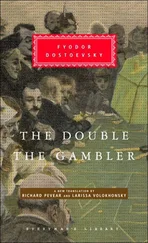“That’s not a problem-assuming, of course, we don’t have to turn everything over to this woman on Long Island.” Chris glanced at her watch and resumed clicking her way down Church Street to her office at City Hall. After a moment, she added, “And don’t be surprised if this lawyer calls you-or Laurel.”
“Really?”
“He might. He didn’t get what he wanted out of me, and so he might try to reach one of you.”
“Oh, I hope he doesn’t call Laurel.”
“Any special reason why?”
“Bobbie-or whomever-took some photos of the swim club where Laurel hung out as a child. And I gather there’s at least one of a girl on a bike up in Underhill-on the same dirt road where Laurel was attacked.”
“A girl Laurel’s age?”
“I think so. I haven’t seen it, but Laurel came across it and told me about it. It seems to have shaken her up. And the combination of those photos has led her to become very…involved.”
The lawyer knew Laurel ’s history, too, and Katherine saw her glance nervously at her now. “That’s a creepy coincidence.”
“The swim club or the girl on the bicycle?”
“Both,” said Chris.
“But it is just a coincidence,” Katherine told her, suddenly feeling a little defensive. “Nothing more. Has to be, right? And I had no idea there were pictures of either when I suggested she look through them.”
Chris shook her head. “Still. It had to be a little unnerving for Laurel to know a homeless schizophrenic was taking pictures of that swimming pool. And then of a girl on a bike.”
Katherine considered reminding her that Bobbie probably wasn’t homeless back then. But she also understood what Chris was getting at, the vulnerability, and so she restrained herself. For the first time, she began to wonder if she’d made a serious mistake when she’d given Laurel that box of old photos.

H OWARD MASON, Paco Hidalgo, and Pete Stambolinos had all come to Bobbie’s funeral service at the soldiers’ cemetery in Winooski. On Friday morning, Laurel skipped her swim and went directly from home to the Hotel New England, where she had breakfast with the three of them in the kitchen the residents there shared. She wasn’t precisely sure what she would learn, but she was so excited that she was up and out of the house before she had heard even the faintest stirrings from behind Talia’s bedroom door. And because she was going to be having lunch later that day with Serena Sargent, she was optimistic that by nightfall she would know considerably more than she did now about Bobbie Crocker’s identity.
The kitchen at the old hotel wasn’t much bigger than the kitchens in most suburban homes. It was functional, and that was a great gift if you have been living in a homeless shelter-and before that on the street-but it wasn’t about to be featured in a home-decorating magazine. The cabinets, donated by a nearby kitchen and bath remodeling store, were made of pressed wood, and the linoleum on the floor had been given to BEDS from a high school that was redoing its cafeteria. Moreover, it was never easy for eighteen separate tenants to share a stove with four burners, a single oven, and a refrigerator that would have been fine for an individual family but was far too small for the army of quarts and pints and the occasional half gallon that was wedged upright onto the top shelves. The room had a single round kitchen table.
When Laurel arrived Friday morning, she was surprised to find that the three men had whipped up a feast. There was a Mexican breakfast pie filled with jack cheese and red peppers, French toast slathered with confectionary sugar and butter, and jelly doughnuts from the convenience store around the corner. Laurel thought the meal probably should have come with an angioplasty, but she was moved by the effort they had made. She guessed they didn’t have a whole lot of company.
Howard waved his hand solemnly over the counter where the food was displayed like a restaurant buffet and demanded, “Good, huh?”
“Looks scrumptious,” said Laurel. “I don’t know where to begin.”
“Always start with the salt. Then end with the sugar,” Paco told her. Paco was roughly her mother’s age, but his skin was so weathered and gray that he looked old enough to be her mother’s father.
“Or, you could live by that slogan you see on bumper stickers,” said Howard. “‘Life is short. Eat dessert first.’ I’ve always liked that.”
She parceled a little of everything onto her plate. She poured some hot water from the kettle on the stove into a mug and took the chair that Howard had graciously pulled out for her. Then she started steeping her tea, watching and waiting as each of the three men built for himself a small mountain of food.
“So, you want to know about Bobbie,” Pete said gruffly once he had sat down. He rested his chin in his hand, and there was a bracelet of untanned, white skin where he normally wore an old wristwatch. Like most residents of the Hotel New England, he spent a lot of time outside in the summer and autumn: It was both necessary for him to escape the confines of his Spartan room, and a routine that gave him comfort. Laurel knew that he liked to hang out on a bench not far from the Salvation Army that had sun in the morning and shade in the afternoon. Sometimes he would hold court there, and sometimes he would simply sleep. He no longer drank, but she hadn’t any idea how he’d stopped: He glared at the world too much to be a member of AA.
“He used to be rich,” Howard informed them. “Filthy rich.”
“Yeah, so was I,” said Pete.
“No, you weren’t,” Howard said.
“Maybe we’re all rich in different ways,” Paco offered.
“Nah, Bobbie really was rich,” Howard insisted.
“Now how do you know that?” Pete asked him, his voice at once bleak and annoyed. Howard’s face fell like flaking spackle. “How could you possibly know that? Bobbie didn’t even know where he was from half the time. And the other half he was having long conversations with his father. His dead father, Laurel-just so you know. Let’s not lose sight of the fact that the guy had been in the state mental hospital.”
“What kinds of things did he and his father discuss?” she asked.
“Hey, he was the one who heard the voices. Not me.”
“Oh, I understand. I was just wondering if maybe he told you what they were saying.”
“When people are talking to themselves in public-and especially when they’re getting frustrated with a person who’s been dead for a while-I’m a lot more likely to ask them to pipe down than to let me in on the big secret.”
Laurel wasn’t surprised that Bobbie was angry at his father, and so she pressed for more: “So you must have overheard what Bobbie was saying.”
Pete rolled his eyes. “He said his dad had a lot of connections, a lot of clout with the right people. You know, he’d done them favors. And so he didn’t understand why his old man wasn’t calling some in to help him out. Or, better yet, to help someone else out. I have to admit, more times than not Bobbie wasn’t asking his dad to help him. Sometimes, even some of us figured in the conversations. Once, just to try and shut him up, I told Bobbie that I didn’t need any help from his old man. And when this didn’t quiet him down, I told him that his dad had really good hearing and he didn’t have to talk so loud. And that, thank you very much, at least got Bobbie to whisper for a change.”
“He knew everybody,” said Paco suddenly.
“Bobbie’s father?” Laurel asked.
Читать дальше













